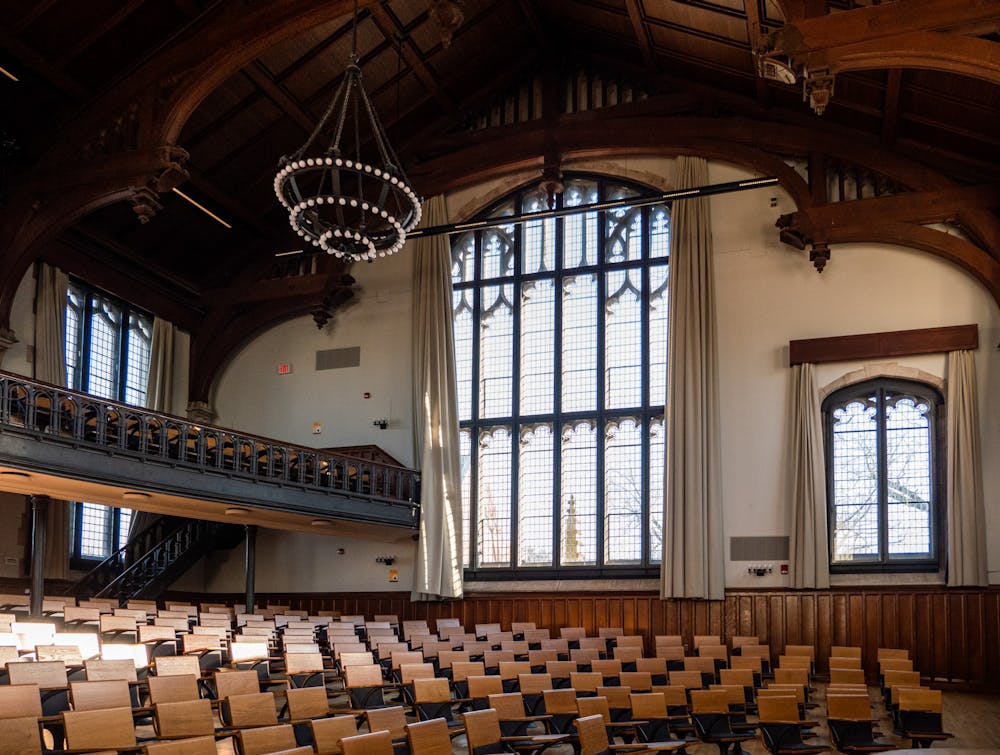The following is a guest contribution and reflects the author’s views alone. For information on how to submit an article to the Opinion Section, click here.
Princeton is an institution known for its academic excellence. For the 12th consecutive year, Princeton has been ranked the best national university in the country per the U.S. News and World Report. Whether we care to admit it or not, it seems to me that most Princeton students and faculty are proud of that statistic. While I personally believe that Princeton is the greatest university on the planet, I also believe that greatness comes at a price.
There is no doubt that Princeton is academically rigorous. With a history of grade deflation and a last report average undergraduate GPA of 3.49, Princeton has some of the most stringent grading in the Ivy League. Princeton is also one of the only Universities in the country that requires a senior thesis of every student (or in the case of some engineering concentrations, a substantial independent project). Yet it is this academic rigor that shapes students into the thoughtful, resilient, and intelligent leaders that Princeton is known for producing.
Unfortunately, academic rigor is under attack as many Princeton students call for the University to ease its high academic standards in the name of mental health. I find this particularly disturbing because many of Princeton’s peers have already lowered their academic standards. Elsewhere in the Ivy League, academic standards are lower and grade inflation is rampant. While other institutions are yielding on their commitment to excellence, Princeton is staying strong.
In light of significant pressure, President Eisgruber has taken a noble stand to preserve what makes Princeton great: academic rigor. As Eisgruber eloquently expressed in his recent op-ed, this academic challenge is a fundamental part of the Princeton experience and need not conflict with student mental health.
While many students claim that Princeton’s commitment to excellence is detrimental to their mental health, I agree with Eisgruber. We need to think deeply and critically about whether it is our academics or our self-destructive choices that are leading to our internal struggles. Can we realistically hope to maintain a high GPA when we are enrolled in six courses, hold several demanding student group leadership positions, and find ourselves on Prospect Avenue past midnight multiple times a week?
Academic challenges — and the discomforts that arise from those challenges — are part of the Princeton experience. Two of the most frequently dreaded elements of the Princeton experience are the first-year writing seminar and the senior thesis. While students frequently complain about these requirements, they are vital components of the rigorous – and therefore worthwhile – education that Princeton provides.
While writing seminars can be frustratingly challenging (trust me, I am in one right now), it is a common struggle that unites all Princeton students and enables us to engage in proper scholarly discourse. By providing all Princeton students with the skills necessary to engage in scholarly discussion, the writing seminar enables Princeton students to interact with each other and the greater academic community in a critical and engaging way that leads to deeper insights and the capacity to conduct individual research.

Likewise, the senior thesis is another universal Princeton challenge, and it can cause significant anxiety for anyone who is writing one. While writing the senior thesis is certainly stressful, many alumni also claim writing their thesis was the most rewarding experience of their time at Princeton.
Just like writing seminars, the senior thesis prompts students to think deeply and critically, pushing them to their academic limit. It is a critical component of the rigorous Princeton academic experience that equips students for success later in life. Without this challenge to produce original research and insight, the Princeton experience would lose much of its value.
It is out of this adversity that the value of a Princeton education is born. Employers, graduate schools, and most of the educated world understand that Princeton academics are challenging. More importantly, former Princeton students are able to recognize the significant obstacles they faced during their undergraduate years and can draw from the skills learned and confidence built by their academic struggles when they face greater challenges later in life.
Princeton is committed to preparing students to be leaders who answer difficult questions “in the nation’s service and the service of humanity.” As such, I believe that when we walked through those gates in front of Nassau Hall, we made a commitment to ourselves and this community to excellence in academics; if we wanted an easy way out, we should have chosen to attend an institution with lower academic standards … like Harvard.

Ethan Hicks is a guest contributor to the Prince who, despite his ability to write this article, remains uncertain about his ability to pass his first-year writing seminar. He can be reached at ethanhicks@princeton.edu.








